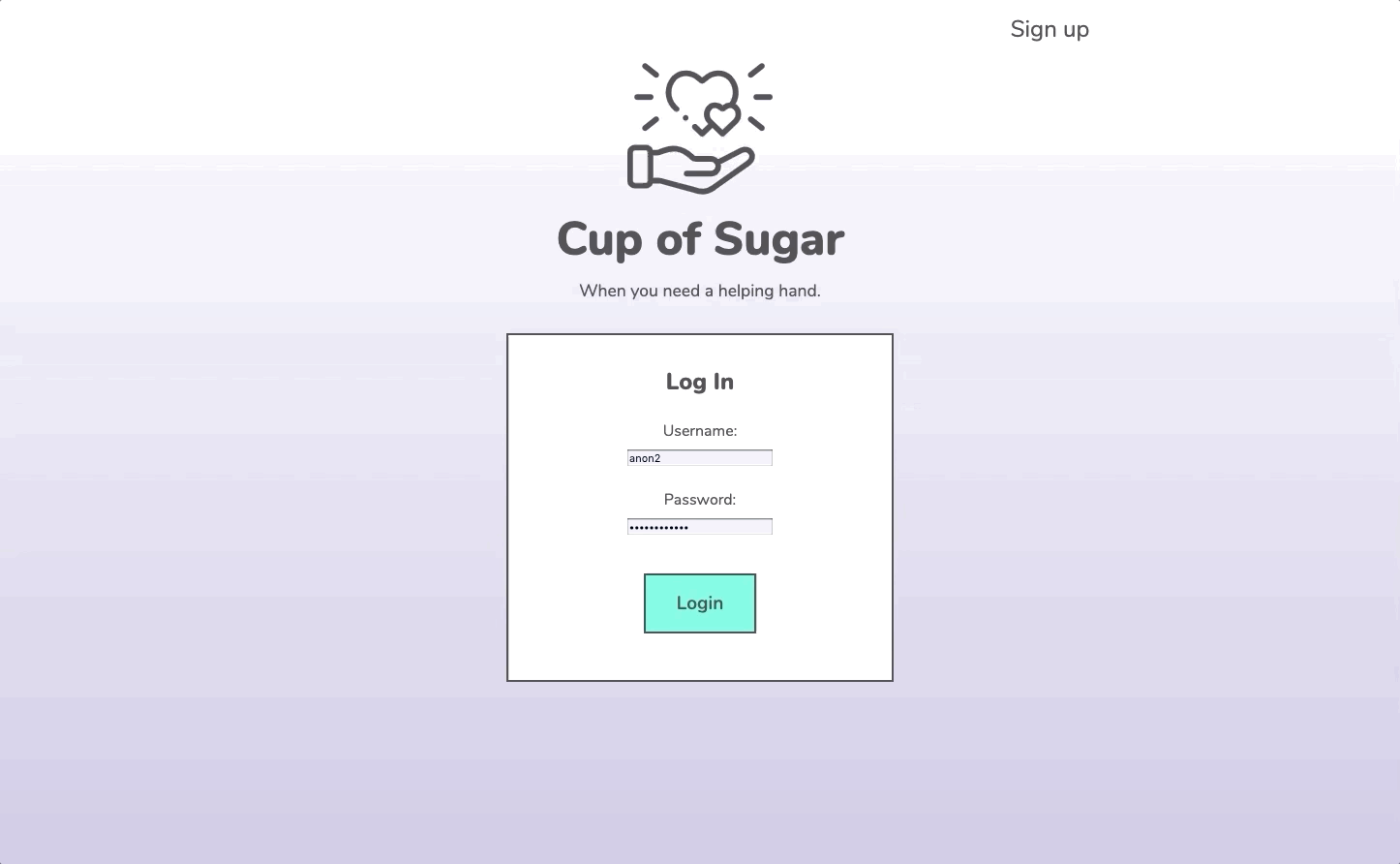This project was created by a team of 3 members: Christopher Floyd, Daniel Fong, and Paul Baisley.
Server Repository: https://github.com/thinkful-ei-leopard/cup-of-sugar-api
Live App: https://cup-of-sugar.now.sh/
Username: Guest
Password: GuestPassword1!
All seeded users and posts are in the Zip Code 00999.
Cup of Sugar is a localized, community-oriented application that aims to bring neighbors closer together by fostering connections based on mutual aid. Users can post offers and requests to a public bulletin board, where other users can respond by post comments or messaging other users privately.
-
Authorization system allows users to:
- Securely register with their information and an optional avatar image.
- Login to their neighborhood, localized by zip code.
-
Requests and Offers System allows users to:
- Post requests and offers on the Community Bulletin, a searchable and sortable board containing all posts within their zipcode.
- Filter the bulletin to only show request or offer posts they created.
- View other user's posts, and comment on them.
- Mark their own posts as resolved when they wish to retract an offer or have their request fulfilled.
-
Messaging System allows users to:
- Communicate 1 on 1 with other users in their neighborhood.
- Access the messaging system by looking up other users in their neighborhood or via other user's posts and comments.
React.js
Context
SCSS
Node.js
Express
PostgreSQL
Mocha/Chai
Jest
Heroku
Zeit
Client application utilizes Context to pass information and maintain state. User data is stored in a Heroku database which is accessed by 5 different endpoinds within the API (see server repository for more details).
View package.json file for dependencies, or run npm install.
